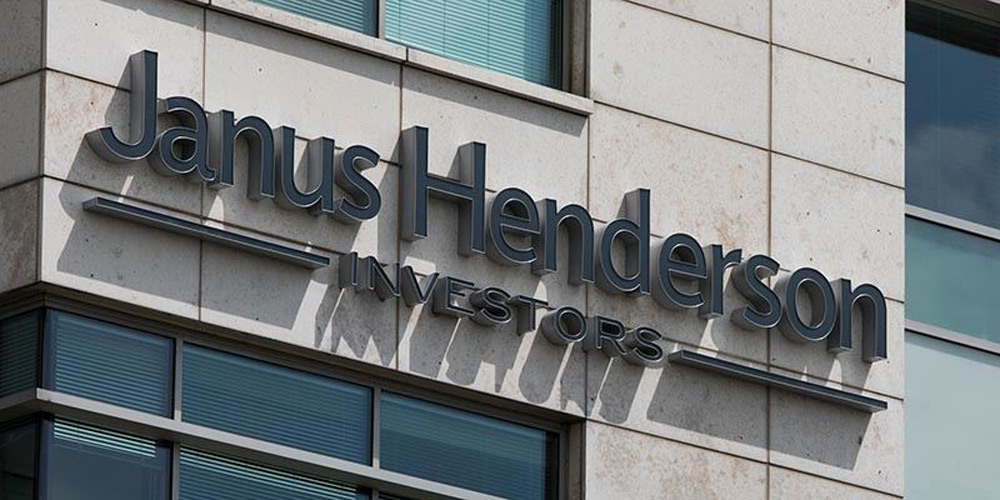There might be light at the end of the tunnel, but it ain’t here yet.
Janus’s new CEO helped AB’s shares surge 200%. Can he repeat the trick?

Latest Newsletter
Value stance rewards managers with first AAA rating
The year comes to a close with a host of managers gaining their AAA wings.
Real Life: A cheaper, smarter way to fly business to the US
Companies are clamping down on travel costs. Here’s how to travel in comfort while keeping the expenses department happy.
Community
Janus Henderson’s new CEO, Ali Dibadj, has the backing of activist investor Nelson Peltz, but no shortage of other challenges facing him as he takes charge of the asset manager.
The firm has not had net inflows for 17 consecutive quarters, per Bloomberg, and its shares have lagged active rivals like T. Rowe Price and AllianceBernstein (AB) in recent years.
Peltz, whose Trian Fund Management is Janus’s largest shareholder with 18.4%, believes Dibadj can change this.
‘Ali’s extensive experience and track record of success at ABgives us confidence in his ability to lead Janus Henderson on an exciting new chapter of growth and value creation,’ stated a Trian spokesperson. ‘Importantly, we have known Ali for more than 15 years and believe his skill set will be invaluable to Janus Henderson during this time of profound change and opportunity in the asset management industry.’

Dibadj (pictured) was most recently CFO and head of strategy at AB. Prior to that he co-led its strategy committee. Over the last five years AB’s shares, including dividends, were up more than 200% on a cumulative basis. During this period the firm embarked on a significant restructure, moving its headquarters from New York City to Nashville, and laying off staff. Janus Henderson’s share price, over the same period, was up a cumulative 50%.
Peltz and Trian CIO Ed Garden took up board seats at Janus in February having first bought into the firm, taking an initial 9.9% stake, in October 2020.
Along with increasing the size of his stake, Peltz has been increasing the pressure on Janus to make changes and improve the share price.
In November last year, Trian disclosed that had proposed various strategic and operational changes to Janus in an effort to boost performance. Around the same time, it was announced that CEO Dick Weil was to resign. He is stepping down at the end of March with Dibadj taking up the role in June.
Since then, Peltz and Garden won their board seats – giving up those they had held at Invesco, the rival asset manager in which they also took at 10% stake in October 2020 – and Janus has announced plans to sell off its struggling quantitative subsidiary Intech.
Along with Weil’s planned exit, Janus’s global CIO Enrique Chang is also leaving the firm. Chang was a member of the firm’s executive committee and played a role in the 2017 merger of Janus Capital and Henderson Global Investors.
Trian has said little in public about its plans for Janus but Peltz and Garden have previously spoken about the opportunities for consolidation in the asset management industry.
The duo is credited with being the driving force behind Franklin Templeton’s 2020 deal for Legg Mason, but would want any deal Janus may pursue to be more successful than its last big move, the aforementioned merger of Janus Capital and Henderson Global Investors.
The combined entity began trading on May 30, 2017. While its shares have performed better than some peers, they have lagged the likes of AB and T. Rowe Price.
Middle of the pack

Sources: Yahoo!Finance and Morningstar Direct / Data through March 24
Over what is almost a five-year period, Janus Henderson has delivered a 50% cumulative return.
AB is the standout of the peer group, with more than a 200% return over the period, T. Rowe Price has delivered a 150% return, while BlackRock has roughly doubled.
Franklin Templeton, Invesco, and Affiliated Managers Group have languished, with the first two losing 16% and 12%, respectively, and the last nearly breaking even.
The S&P roughly doubled over this period, while the index’s financial sector delivered around 80%.
When it comes to flows since the quarter after the Janus-Henderson merger (September 2017) through February 2022, the combined firm turned in a middling performance there as well, shedding $24bn over that almost five-year period.
The firm’s US mutual funds and ETFs have had outflows in all but three of the 19 quarters since Janus and Henderson merged.
Over that period, BlackRock’s active funds have taken in $54bn. AB gained $17bn in flows to its mutual fund business, while Franklin Templeton’s flows were flat.
AMG did slightly better than Janus Henderson, suffering $18.4bn in outflows, while T. Rowe Price and Invesco did worse, shedding nearly $88bn and around $123bn from their mutual funds, respectively.
Vanguard, which is not a public company and runs predominantly passive funds, has taken in $1.2tn over this time.
Janus has struggled for several quarters of late due to its quantitative subsidiary, Intech, bleeding money. In February, Janus announced it would sell the shop. At the same time, it disclosed that Intech accounted for $4.2bn out of $5.2bn redemptions for the final three months of 2021, and three quarters of the firm’s $16.2bn annual outflows that year.
Selling Intech has been agreed. Whether Dibadj and Trian can find a buyer for Janus remains to be seen.
Latest Newsletter
Amplify Issue 30: The fund groups topping the tree
We analyse which groups have had the biggest inflows and outflows in 2022, look at managers achieving their first AAA ratings, and hear from Rob Kyprianou on why regulation gets it back to front.
Amplify Issue 29: Red hot: 2022’s private market hiring spree
2022 has been a hot year for private markets, but are asset managers putting the brakes on their expansion efforts? Plus, we look at how the bear market has affected launches this year and look at how firms can better communicate their brand values.
Amplify Issue 28: Fill your ESG product gaps
We hear from fund buyers on what they’re looking for from an ESG fund, find out what Neuberger Berman is plotting in the alts world, and learn the winners of Citywire’s Gender Diversity Awards.
Community
